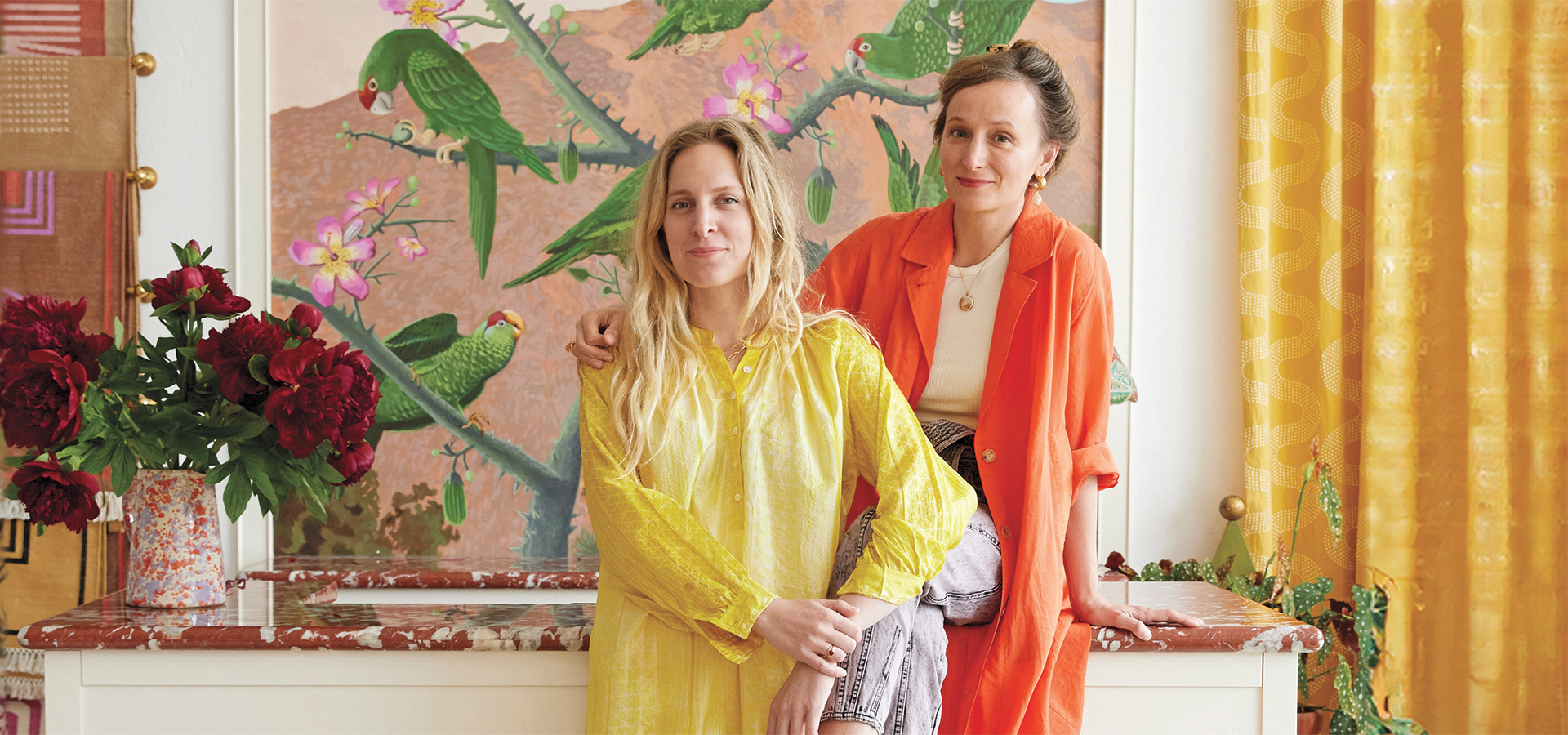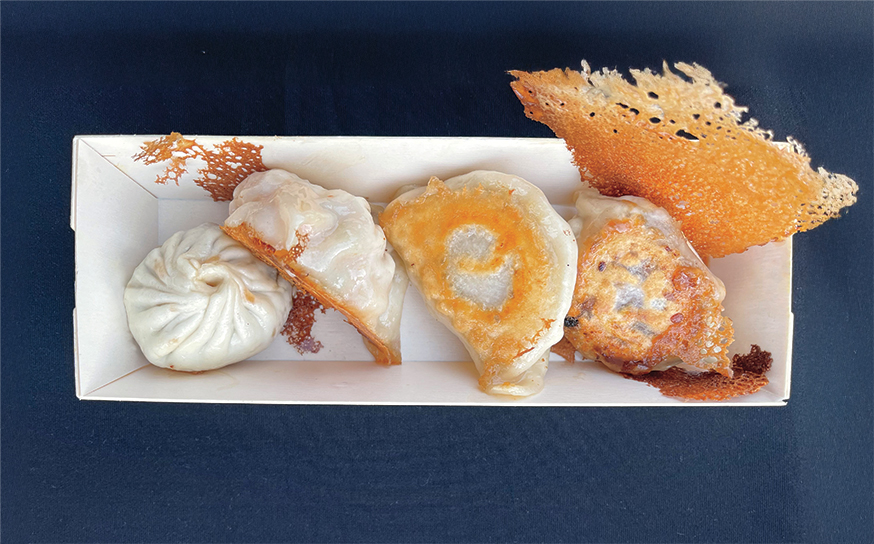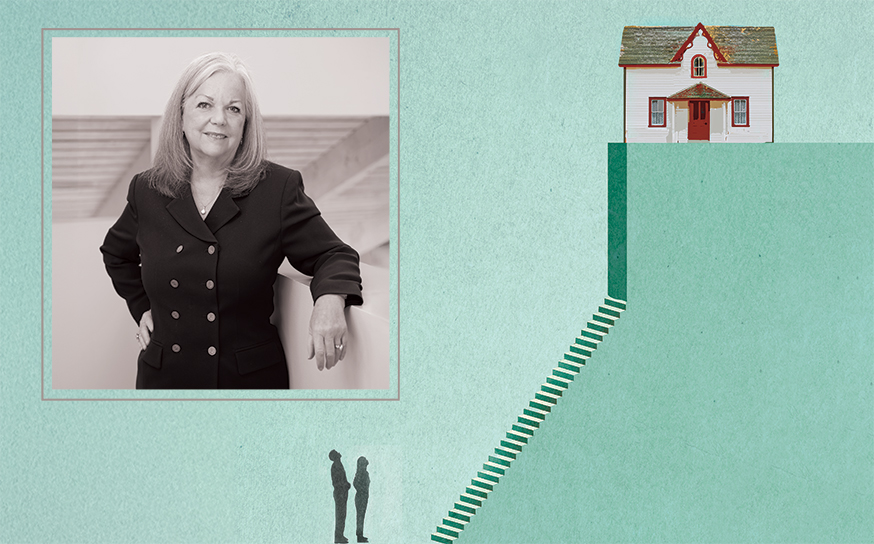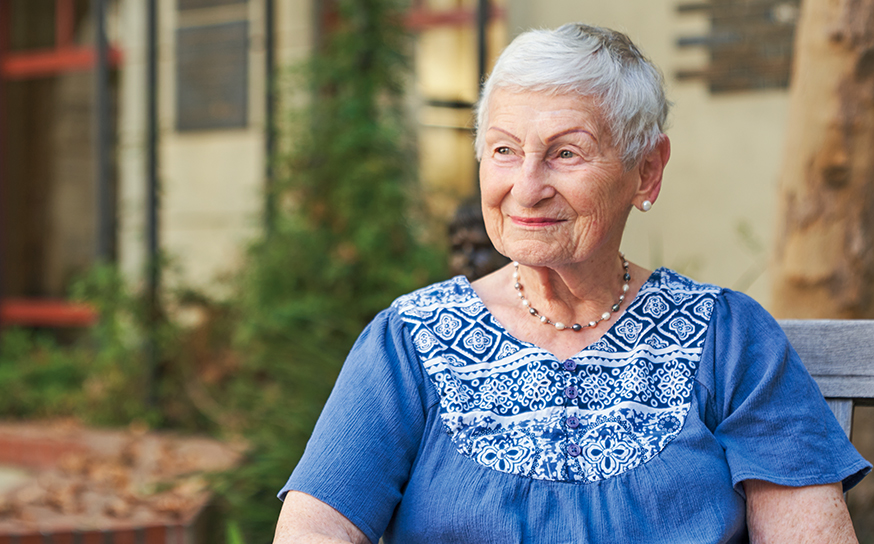Since founding Block Shop design studio in 2013, sisters Lily Stockman and Hopie Stockman Hill have created new ways to revel in color and pattern, all the while adhering to a SoCal-honed aesthetic sensibility. Beginning as an endeavor that incorporated Lily’s accomplishments as a painter with the entrepreneurial savvy Hopie developed at Harvard Business School, the business has evolved into a growing brand that now includes a boutique in Atwater Village (blockshoptextiles.com).

Even before they launched the store earlier this year, the sisters’ clients were eager to find creative uses of their textiles. These include items with bold geometric patterns combined with eye-catching colors made by skilled dyers, printers and weavers whom Lily got to know when she lived in Jaipur, India. Block Shop’s distinctive oversized scarves could be spotted doubling as wall hangings, such as one in the erstwhile Echo Park restaurant Ostrich Farm. Today, with sister Grier Stockman on board as head of brand and chief marketing officer (Lily has recently stepped away from her Block Shop duties to focus on her career as an artist), their product portfolio encompasses throw pillows, rugs, blankets, wall art and table linens. Robes that encourage lounging and unstructured, oversized jackets are also in the lineup.
“The theme we keep coming back to is living your art.”
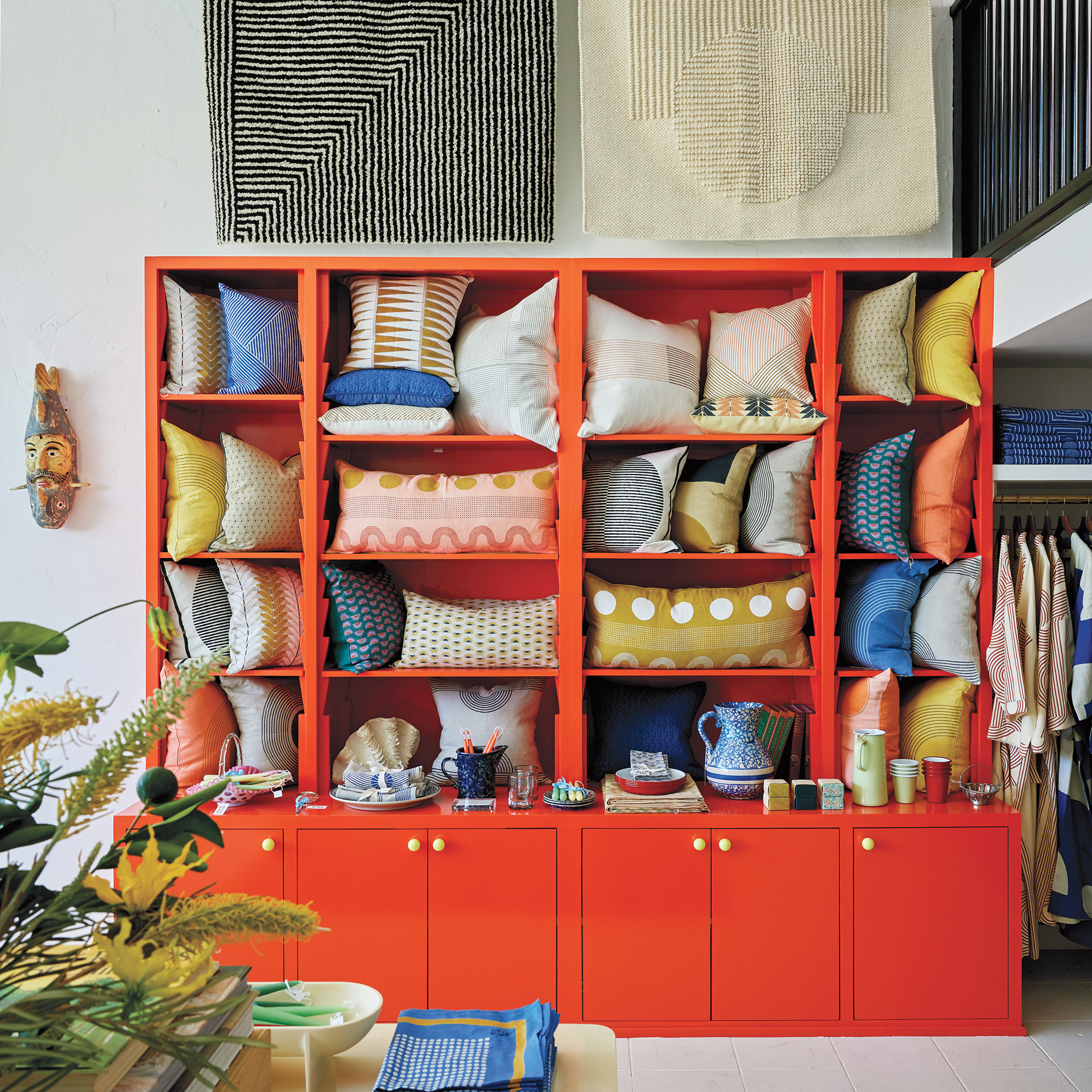
A display case filled with pillows at the Atwater Village boutique.
So when you’ve explored the possibilities of goods and accessories that infuse softness and joy into homes, what might be next? Wallpaper seemed like the logical next step. “We are all about world-building through pattern and texture, and wallpaper has to be the most thrilling application of pattern writ large,” Hopie explains. “Wallpaper felt like a natural extension of our art pieces and fabric, and we love the way it transforms the energy of a room.”
The collection—which includes seven new patterns printed on paper, fiber and grass cloth—was introduced this past spring. As it turns out, creating wallpaper has become a special way for this team to tap into rich possibilities. Both love a deep-dive research project and synthesizing various influences. “The theme we keep coming back to is living your art,” reflects Hopie.
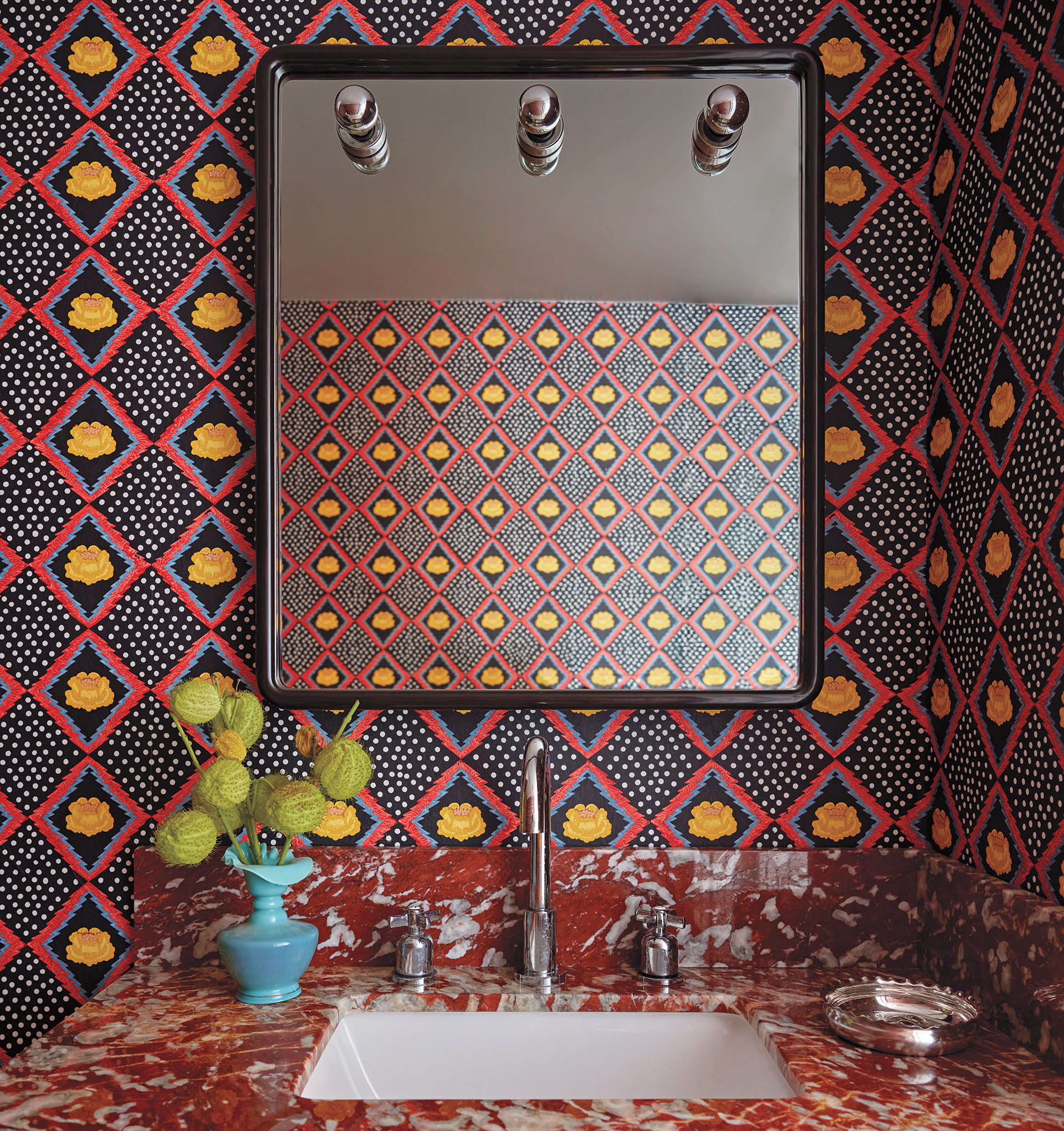
A Block Shop wallpaper design provides the perfect backdrop for a bathroom vanity.
Inspirations include: bucolic 17th-century modernist farmhouse Charleston in Sussex, England (now a museum and gallery), multidisciplinary Austrian artist and designer Dagobert Peche, painter Lois Mailou Jones, and even 19th-century American maritime knot boards. For all this eclectic global input, the designs still feel California casual. Valley Dot suggests the motion of waves—imagery that resonates in the Golden State—and incorporates the earthy imperfections of Japanese katagami stenciling traditions. The alternating circles and rectangles in cheerful People Person are an outgrowth of the Stockmans’ admiration for abstract artist Mavis Pusey.
A certain rigor also grounds these efforts. “Our pattern language is rooted in the choreography of dots and stripes moving at different speeds across a flat plane,” Hopie says. This approach that blends emotional responses with the practical realities dictated by interior design adds cohesion to the expressive motifs, whether it’s Hopie’s lush rendering of kumquat branches inspired by a tree at their former studio space, or peony blossoms in a jaunty grid. “We went heavy on nostalgia with our florals,” she adds. “I was pregnant when I designed the collection, so with this new life in mind, I wanted to make patterns that would bring warmth and light into the rooms they inhabit.”
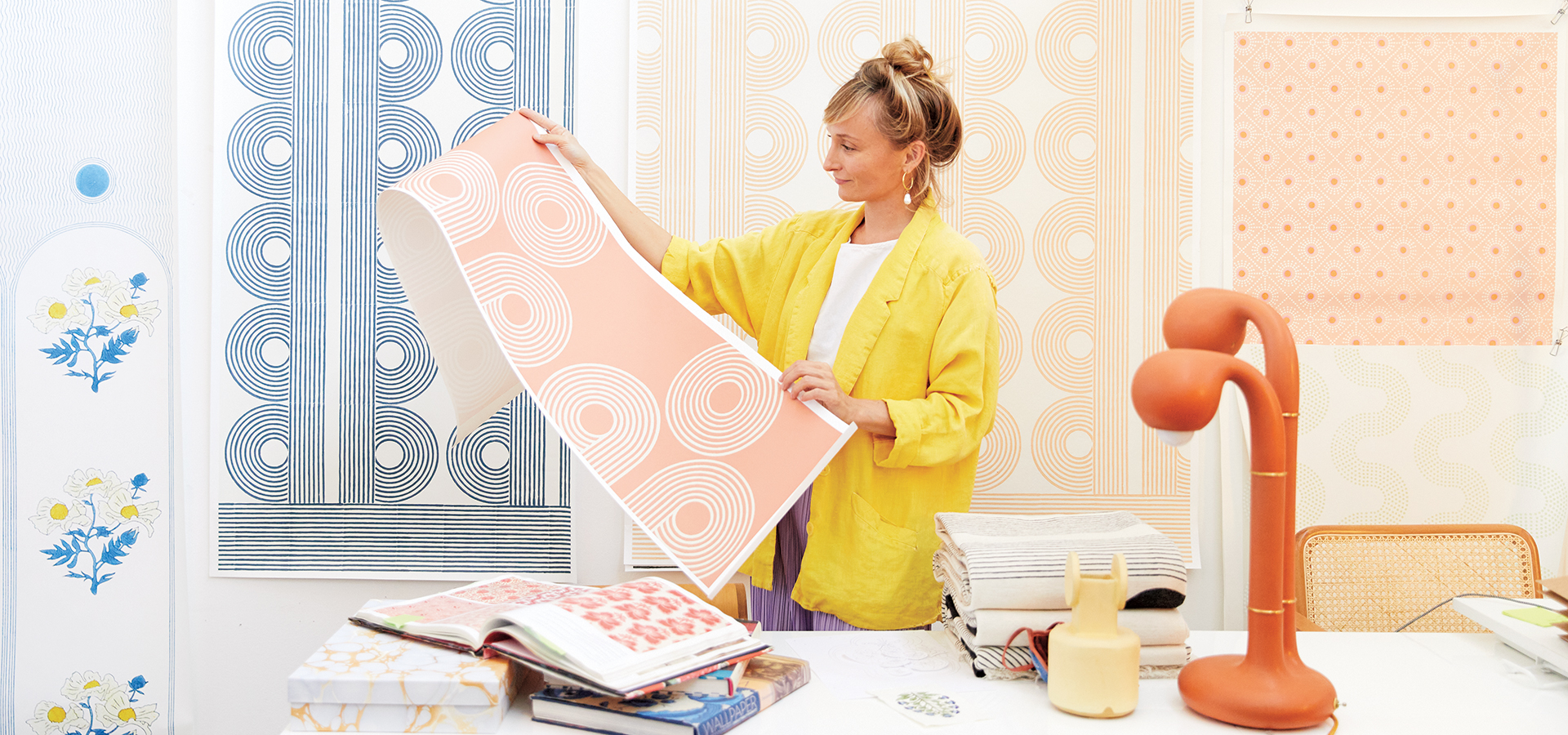
Above Hopie Stockman Hill with some of Block Shop’s wallpaper designs.
•••
The production process begins with sketches and physical wood-block prints made in Jaipur. Then a specialized printer in Connecticut digitally produces each order on the specified materials. Like all of Block Shop’s endeavors, the end result has depth and tactile appeal.
Intentional partnerships and ethical sourcing are at the core of company’s mission. Block Shop dedicates 5% of its profits to supporting community organizations in Jaipur and youth-oriented arts programs in Los Angeles. They also maintain close ties with a network of independent craftspeople and artisans, both domestically and abroad. Relationships at all points in the process matter—including the end user. “When a client trusts us to fill their room floor-to-ceiling with one of our designs, we see it as a great honor,” Hopie states.
Join the Valley Community






